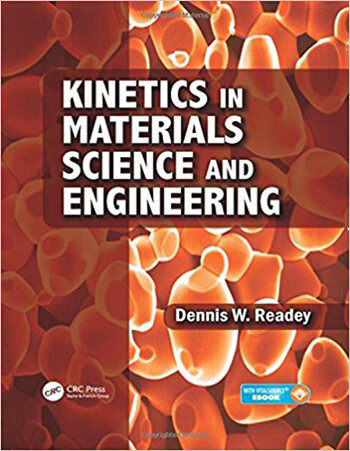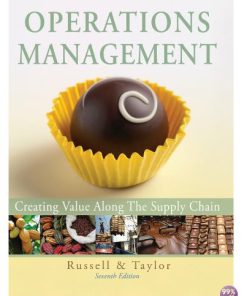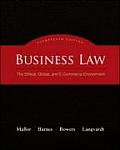Kinetics in Materials Science and Engineering 1st Readey Solution Manual
$35.00 Original price was: $35.00.$26.50Current price is: $26.50.
Kinetics in Materials Science and Engineering 1st Readey Solution Manual
Instant download Kinetics in Materials Science and Engineering 1st Readey Solution Manual

Product details:
- ISBN-10 : 1482235668
- ISBN-13 : 978-1482235661
- Author: Dennis W. Readey
This book provides an in-depth introduction to the most important kinetic concepts in materials science, engineering, and processing. All types of materials are addressed, including metals, ceramics, polymers, electronic materials, biomaterials, and composites. The expert author with decades of teaching and practical experience gives a lively and accessible overview, explaining the principles that determine how long it takes to change material properties and make new and better materials. The chapters cover a broad range of topics extending from the heat treatment of steels, the processing of silicon integrated microchips, and the production of cement, to the movement of drugs through the human body. The author explicitly avoids “black box” equations, providing derivations with clear explanations.
Table contents:
Introduction to Kinetics
Kinetics and Materials Science and Engineering
Materials Science and Engineering
Microstructure
History of Materials Science and Engineering as a Discipline
Impact of Materials Science and Engineering
This Book
Reaction Kinetics
Introduction to Kinetic Processes in Materials
Material Transport and Reaction Rates
Dissolution of NaCl and Al2O3 Contrasting Diffusion and Reaction Control
Homogeneous and Heterogeneous Reactions
Homogeneous Reaction Rates
Reaction Order
Zero Order Reaction
First Order Reaction
Example of First Order Reaction: COCl2 Decomposition
Radioactive Decay and Related Nuclear Reactions
Radiocarbon Dating
Importance of First Order Reactions in Materials
More Complex Reactions
Pseudo First Order Reactions
Second Order Reactions
Reactions that Reach Equilibrium
Parallel Reactions
Series Reactions
Higher Order Reactions
Complexity of Real Reactions: HI and H2O formation
Appendix: Two Reactions in Series
Temperature Dependence of the Reaction Rate Constant
Arrhenius Equation: k = k0 exp(-Q/RT)
Hindenburg Disaster
Adiabatic Flame Temperature
Combustion Synthesis
Barometric Formula
Boltzmann Distribution
Activated State
Catalysts: Pt, Ziegler-Natta
Heterogeneous Reactions: Gas-Solid
Passive Corrosion: SiO2
Active Corrosion: Si, Cr, SiC
Materials Processes: Kroll Process, Siemens Process, Optical Fibers, and Halogen Lamps
Chemical Vapor Deposition of Si: Deposition Processes and Epitaxy
Deposition of Silicon from Trichlorosilane
Active Gas Corrosion of Silicon
Carbon-Carbon Composites: Chemical Vapor Infiltration and Shuttle Columbia Accident
Halogen Lamps
Common Phenomena: Kinetic and Thermodynamic Factors and Growth Rate
Phase Transformations
Thermodynamics of Surfaces and Its Effects
Surface Energy: Origin and Importance
Surface Reconstruction
Typical Values
Surface Energy and Curvature
Curvature and Vapor Pressure
Curvature and Solubility
Curvature and Phase Stability
Ostwald Ripening by Reaction
Freezing Point Depression
Specific Surface Area
Wetting
Interfacial Energies and Microstructure
Interfacial Energies and Morphology
Interfacial “Phases”
Capillary Rise
Surface Segregation
Phase Transitions
Thermodynamics
Rates of Phase Transitions
Transitions in One-Component Solids
Transitions in Multi-Component Systems
Qualitative: Nucleation and Growth and Spinodal Decomposition
Quantitative: Nucleation and Growth
Nucleation Rate
Overall Rate of Phase Transformations: Johnson-Mehl-Avrami Equation
Precipitation
Crystallization of Polyethylene
Heterogeneous Nucleation
Appendix A: Kinetic Energy and Speed of Gas Molecules
Appendix B: Boltzmann Distribution
Appendix C: Maxwell-Boltzmann Speed Distribution
Appendix D: Mean Molecular Speed in a Gas
Appendix E: Exact Result for Molecular Surface Collision Rate
Appendix F: Langmuir Adsorption Isotherm
Diffusion in Ideal Systems
Introduction to Diffusion
The Diffusion Process
Fick’s First Law
Values of Diffusion Coefficients: D = 1/3 λv, Gases, Solids, and Liquids
Fick’s Second Law: Conservation of Mass
Solving Diffusion Problems: Boundary and Initial Conditions
Infinite and Semi-Infinite Boundary Conditions
Finite Boundary Conditions
Steady-State versus Equilibrium
Measurement of Diffusion Coefficients
Appendix A: Fick’s Second Law in Cylindrical Coordinates
Appendix B: Fick’s Second Law in Spherical Coordinates
Atomistic Mechanisms of Diffusion in Solids and Gases
Introduction: Magnitudes and T-Dependencies, Why Not Liquids?
Energy Absorption by Atoms and Molecules and Gases and Solids
Interstitial Diffusion in Solids
Vacancy Diffusion in Solids
Statistical Mechanics Approach: Vacancy “Concentrations”
Regular Solution Approach
Quasi-Chemical Approach: “Point Defect Chemistry”
Point Defect Charges: Kröger-Vink Notation
Intrinsic Point Defects in Compounds: Schottky Defects
Implications of Vacancy Diffusion
Intrinsic Vacancy Diffusion
Surface and Grain Boundary Diffusion
Reptation in Polymers
Diffusion in Gases
Mean Free Path in a Gas
Gas Diffusion Coefficient
Chapman-Enskog Equation
Kundsen Diffusion
Appendix A: Vibrational Frequency
Appendix B: Vacancy Concentrations for Schottky Defects, NaCl, and Al2O3
Steady-State Diffusion
Gas Diffusion through Solids
Polymer Gas Separation Membranes
Gas Diffusion through Metals
Cylindrical and Spherical Coordinates
Hydrogen Diffusion in a Glass Laser Fusion Sphere
Passive Oxidation of Silicon
Review of Glass Structure and Properties: Glass Transition and Shuttle Challenger Accident
CO2 Diffusion through a Biological Cell Wall
CVD of Si from SiHCl3 by Diffusion
CVD of Si with Both Reaction and Diffusion
Evaporation of a Water Drop
Dissolution of NaCl
Dissolution of Spheroidized Cementite in Austenite
Common Phenomena: Kinetic and Thermodynamic Factors and Growth Rate
Ostwald Ripening by Diffusion
Solutions to Fick’s Second Law: Infinite and Semi-Infinite Boundary Conditions
Goal and Caveats
Solution with a Dimensionless Variable: x2 = 4 Dt
Semi-Infinite BCs: Diffusion of B into Si and Error Functions
Infinite BCs: Interdiffusion of Cu and Ni
Constant Surface Concentration: B into Si
Constant Surface Concentration: Decarburizing Transformer Steel
General Solution
Appendix A: Integrating e x2dx ∞ − −∞ ∫
Appendix B: Notes on the Error Function
Finite Boundary Conditions
Coring in a Cast Alloy
Drying a Cast Polymer Sheet: C(x,0) = C0 sin (Ï€x/L)
Degassing Transformer Steel: C(x,0) = C0
Diffusion through a Polymer Membrane
Equilibration by Diffusion in a Cell
Interdiffusion of Finite Size Particles
General Approximation: Dt/L2 ≅ 1
Diffusion in Non-Ideal Systems
Generalized Diffusion: Fluxes and Forces
Flux of Moving Particles
Mobility and Forces: Stokes Law
Particle Size Measurement by Settling
Electrical Mobility
Absolute Mobility and Diffusion
Diffusion in Liquids: Stokes-Einstein Equation
Ionic Conductivity: Nernst-Einstein Equation
Non-Ideal Diffusion Processes
Interdiffusion in Isomorphous Systems: Metals
Intrinsic Diffusion Coefficient
Kirkendall Effect
Darken’s Equations
Interdiffusion in Isomorphous Systems: Ionic Compounds
Non-Isomorphous Systems
Free Energy Gradients and Geometries
Oxidation of Metals
Calcining: Linear Model
Calcining: Jander Model
Calcining: Braunstein Model
Sintering
Grain Growth
Spinodal Decomposition Revisited
People also search:
kinetics of materials pdf
engineering materials 1
materials kinetics fundamentals
Related products
Solution Manual
International Accounting Doupnik 4th Edition Solutions Manual
Solution Manual
Solution Manual
Prentice Hall’s Federal Taxation 2014 Comprehensive Rupert 27th Edition Solutions Manual
Solution Manual
Solution Manual for Absolute C++, 5/E 5th Edition Walter Savitch
Solution Manual
Solution Manual
International Business Competing in the Global Marketplace Hill 10th Edition Solutions Manual











